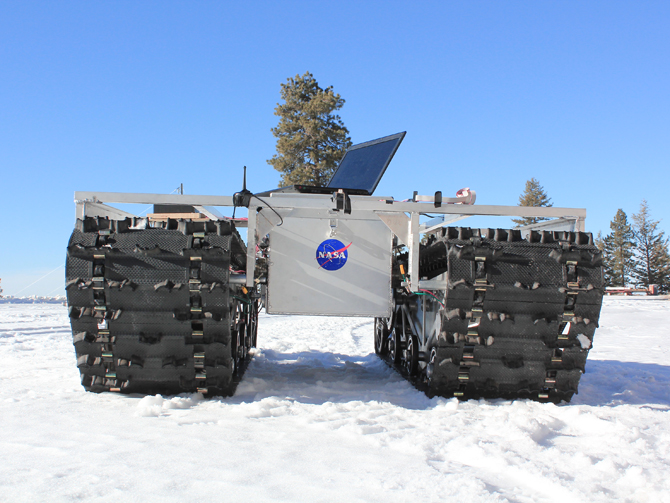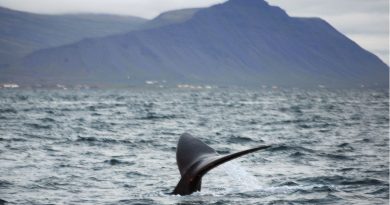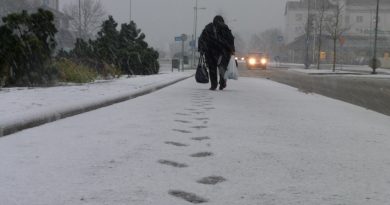NASA rover roaming Greenland’s ice sheet

A NASA rover known as GROVER is roaming Greenland to collect data that may help scientists better understand changes to the ice sheet.
GROVER, short for Goddard Remotely Operated Vehicle for Exploration and Research, began exploring the ice sheet on May 3 and is expected to operate until June 8, NASA said in a press release this month.
“Robots like GROVER will give us a new tool for glaciology studies,” said Lora Koenig, a glaciologist at NASA’s Goddard Space Flight Center in Greenbelt, Md. and science advisor on the GROVER project, said in the NASA press release.
While many people think “space exploration” when it comes to rovers, scientists say the new machine makes just as much sense in the world’s remote Arctic environments.
“GROVER is just like a spacecraft but it has to operate on the ground,” said Michael Comberiate, a retired NASA engineer. “It has to survive unattended for months in a hostile environment, with just a few commands to interrogate it and find out its status and give it some directions for how to accommodate situations it finds itself in.”
NASA describes the 800-pound rover as ‘tank-like.’ The rover moves on snowmobile tracks and is solar-powered, allowing the rover to operate without creating air pollution.
A ground-penetrating radar will sent radio waves into Greenland’s ice sheet giving readings on snow and ice layers.
Data suggests that Greenland’s ice sheet is melting five times faster than in the 1990s.
GROVER was developed in 2010 and 2011 by teams of students at summer engineering boot camps at Goddard.
Related Link:
Video: NASA rover prototype set to explore Greenland Ice Sheet, NASA



